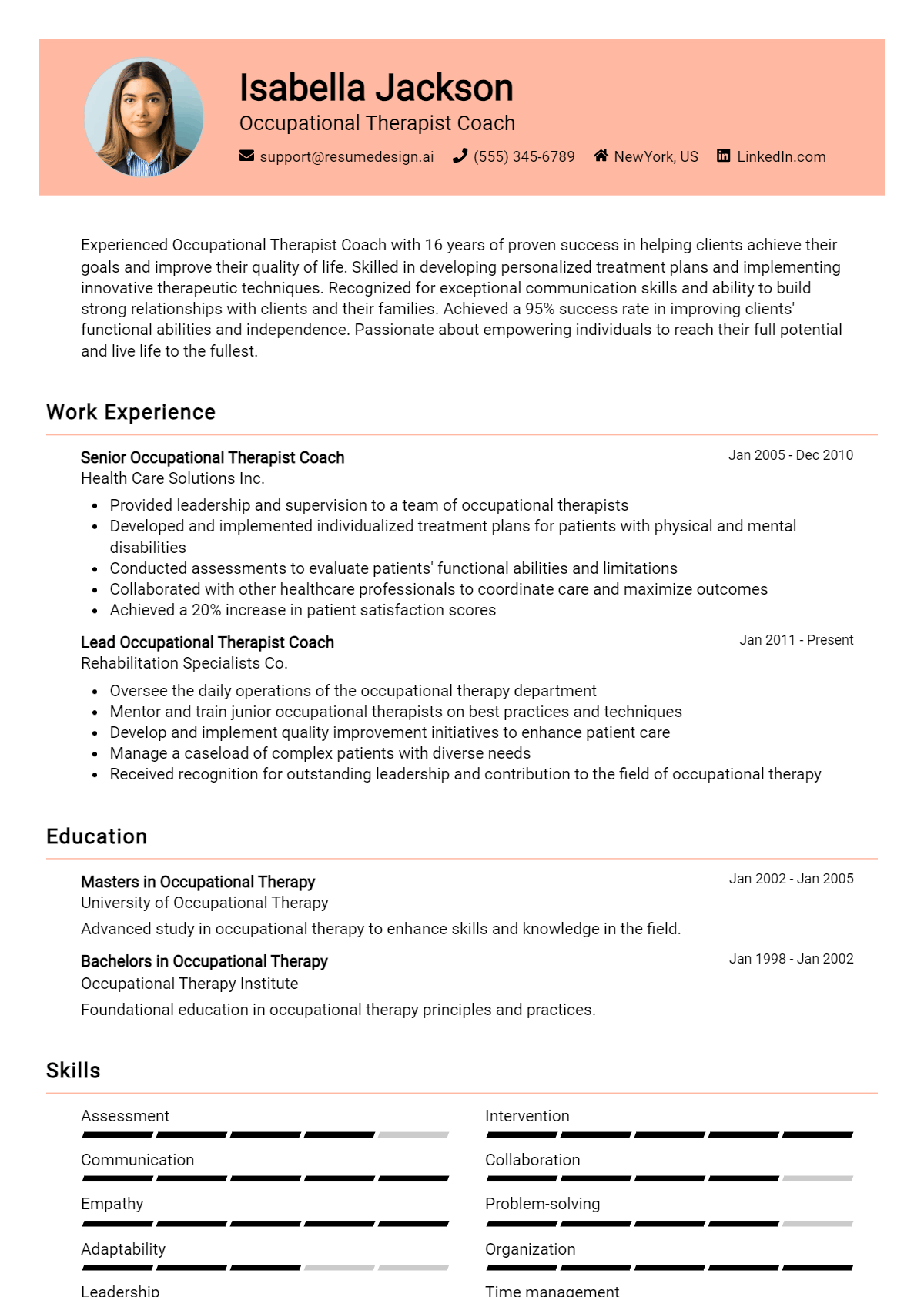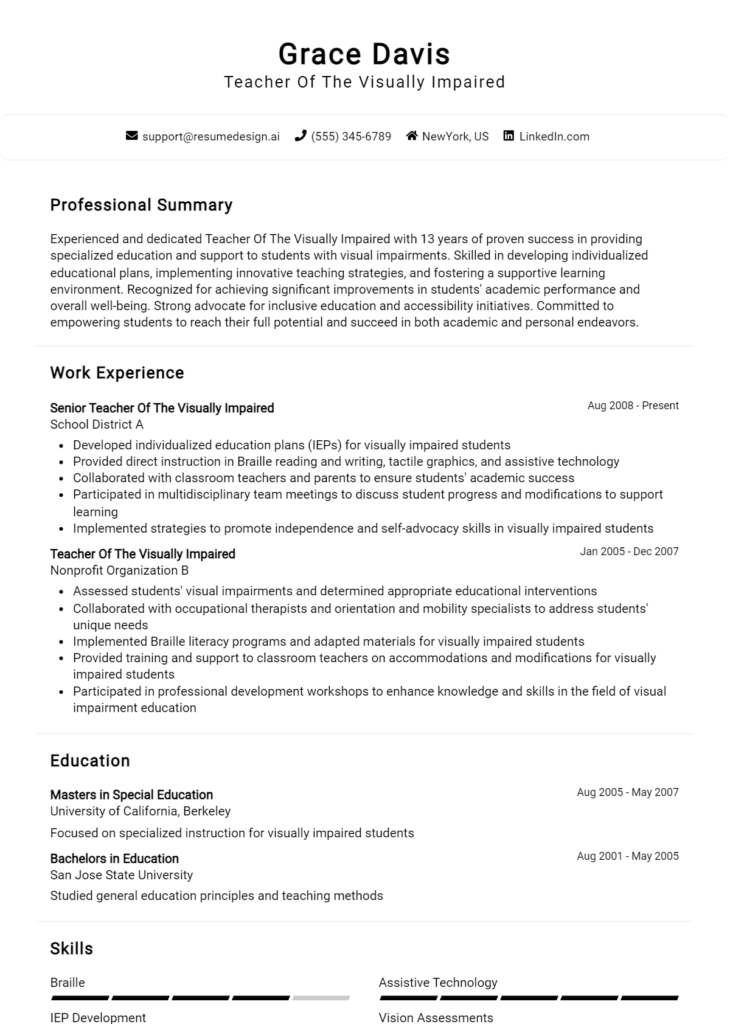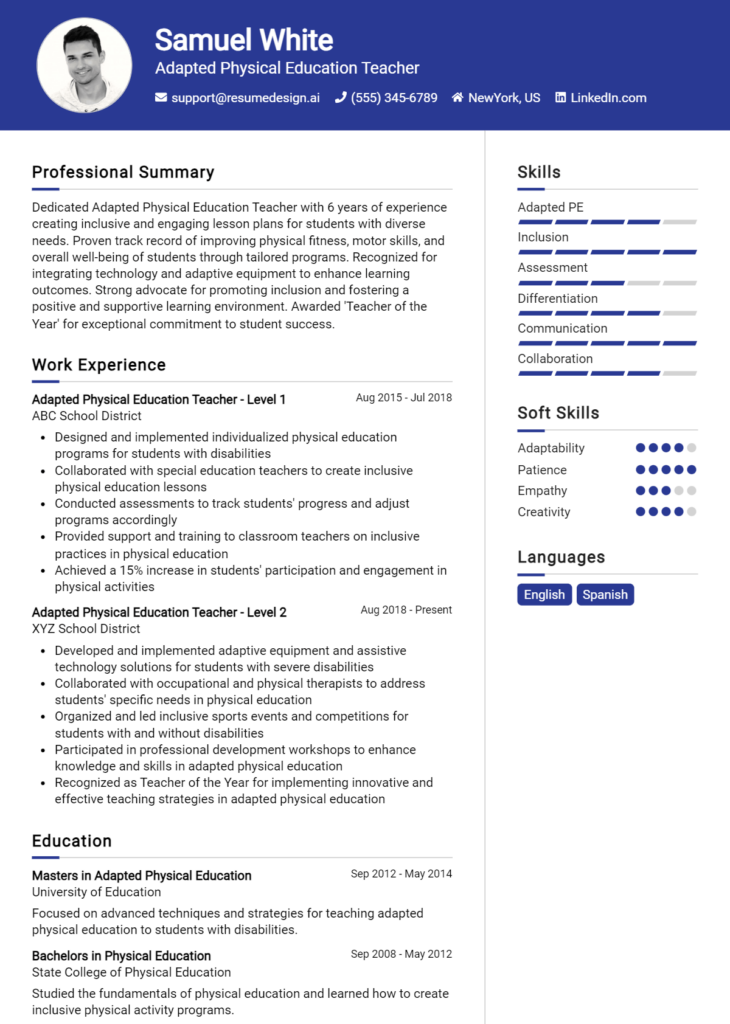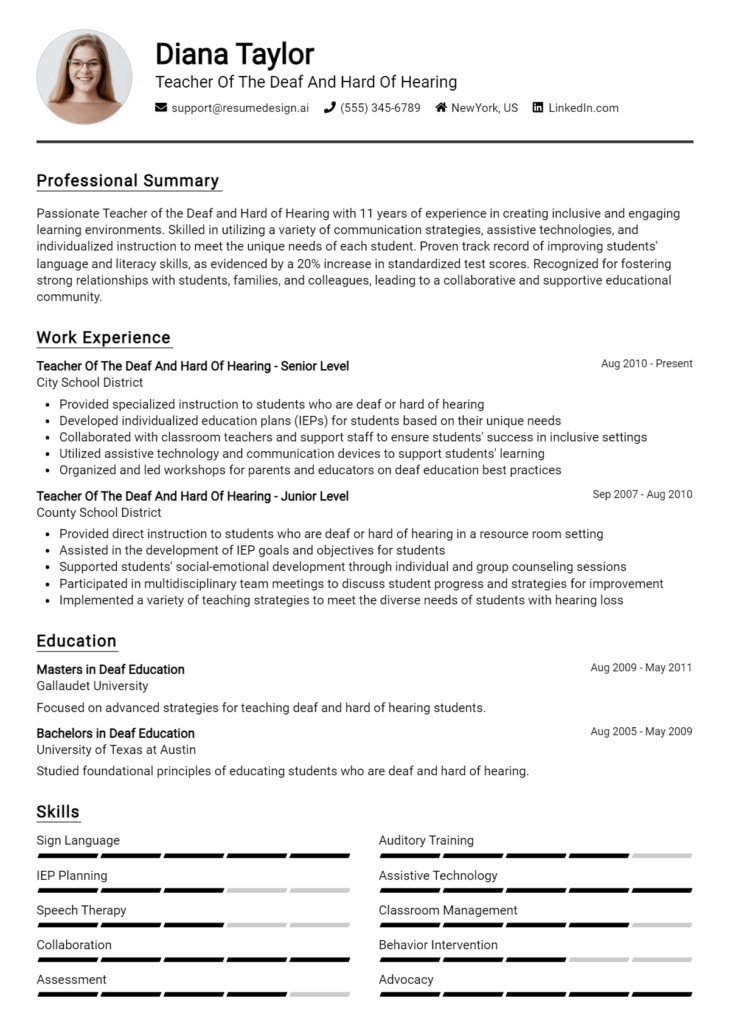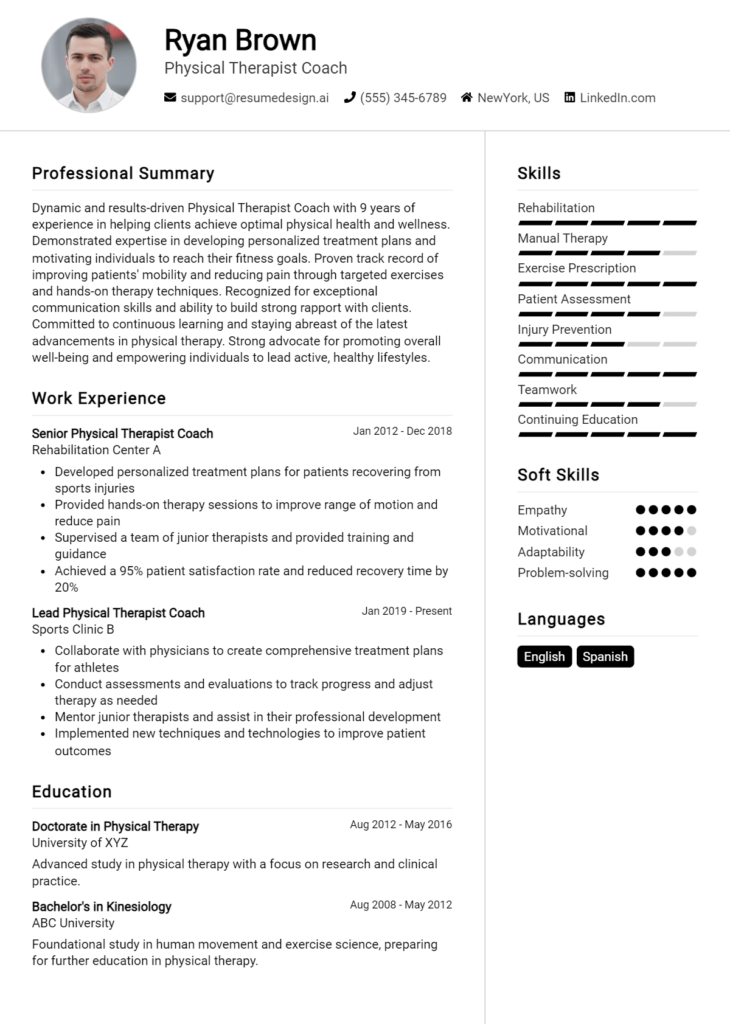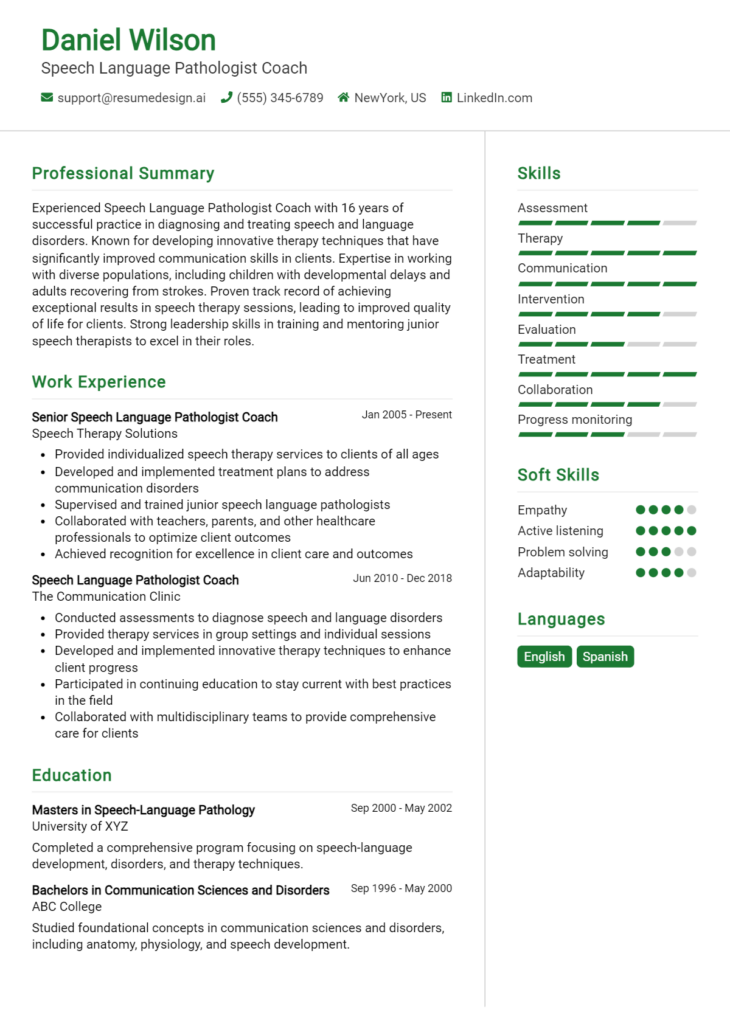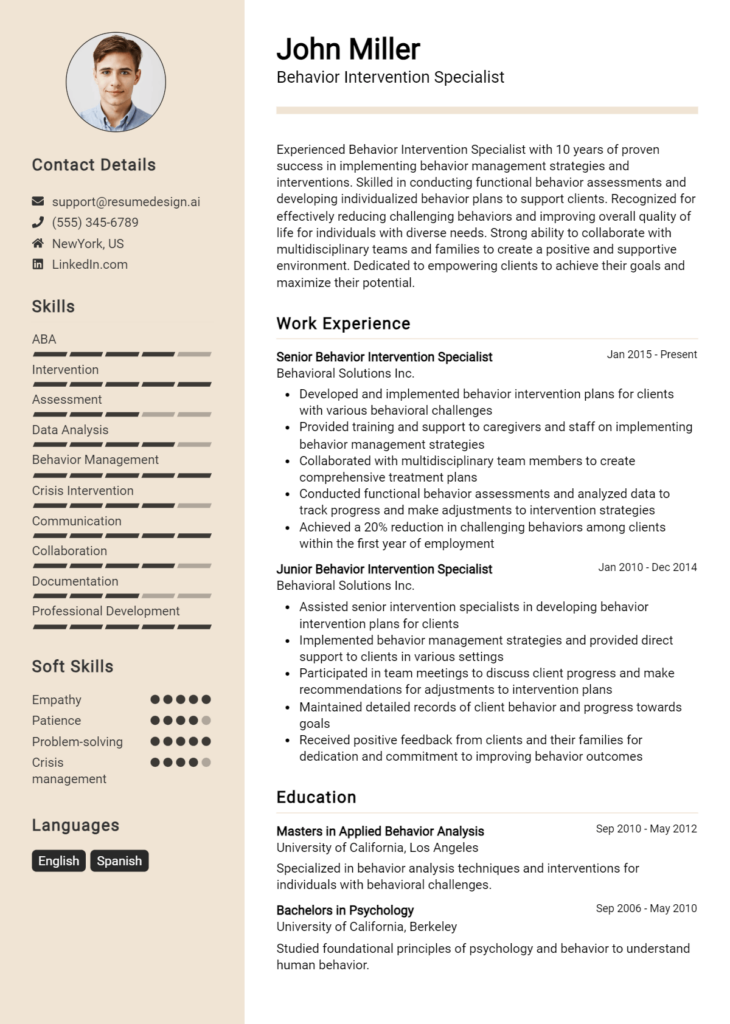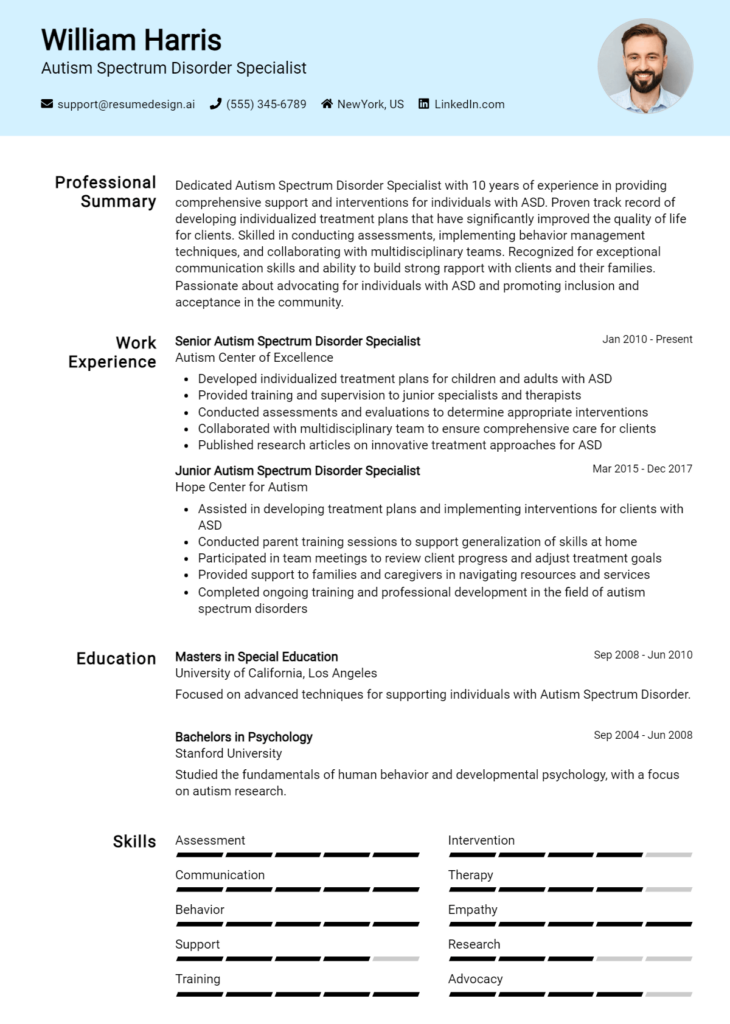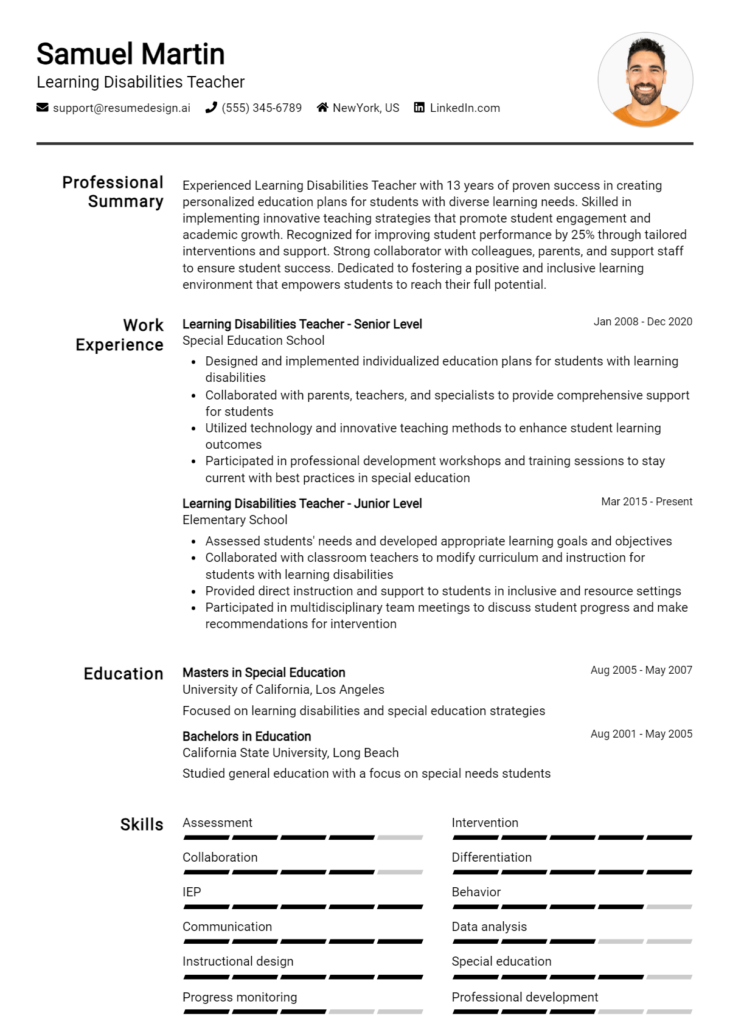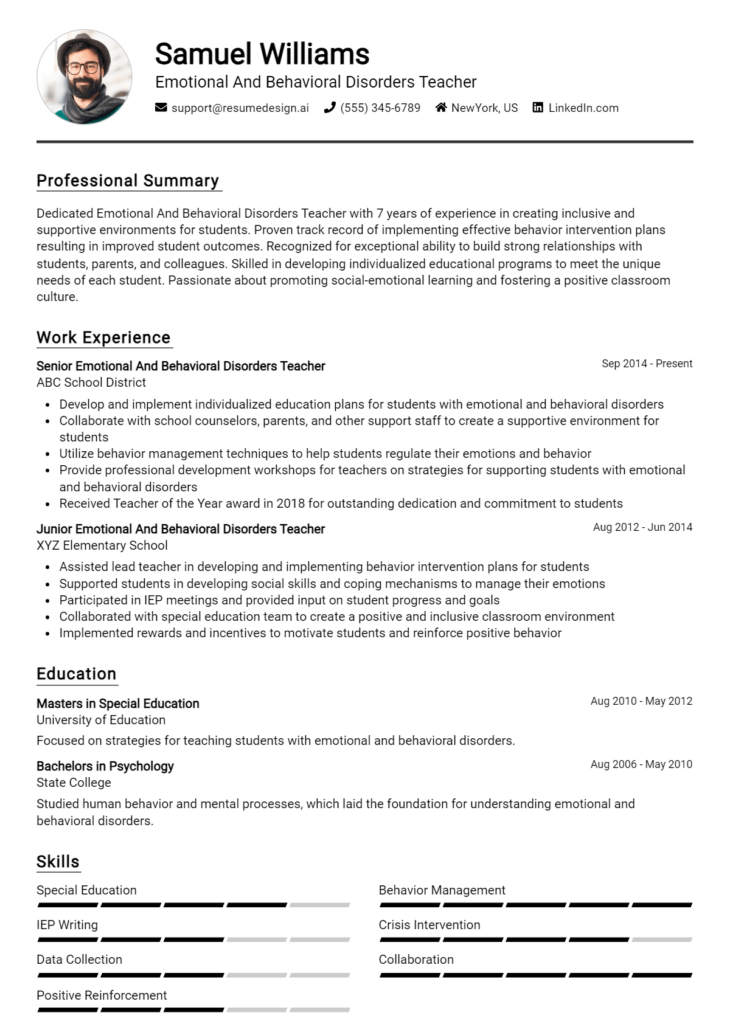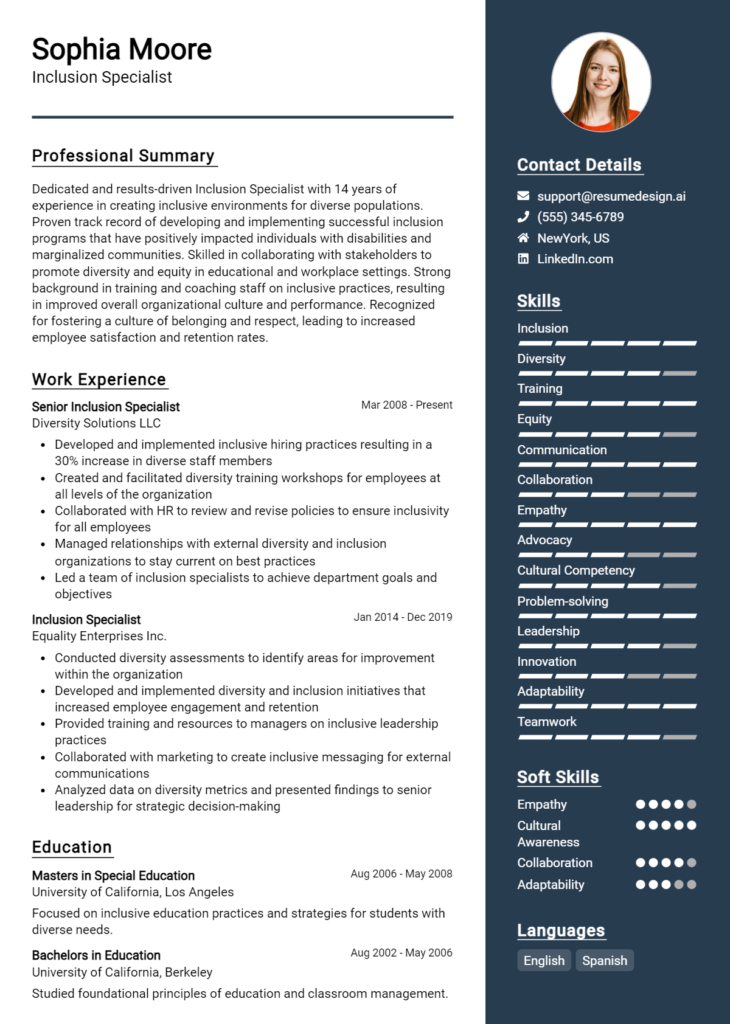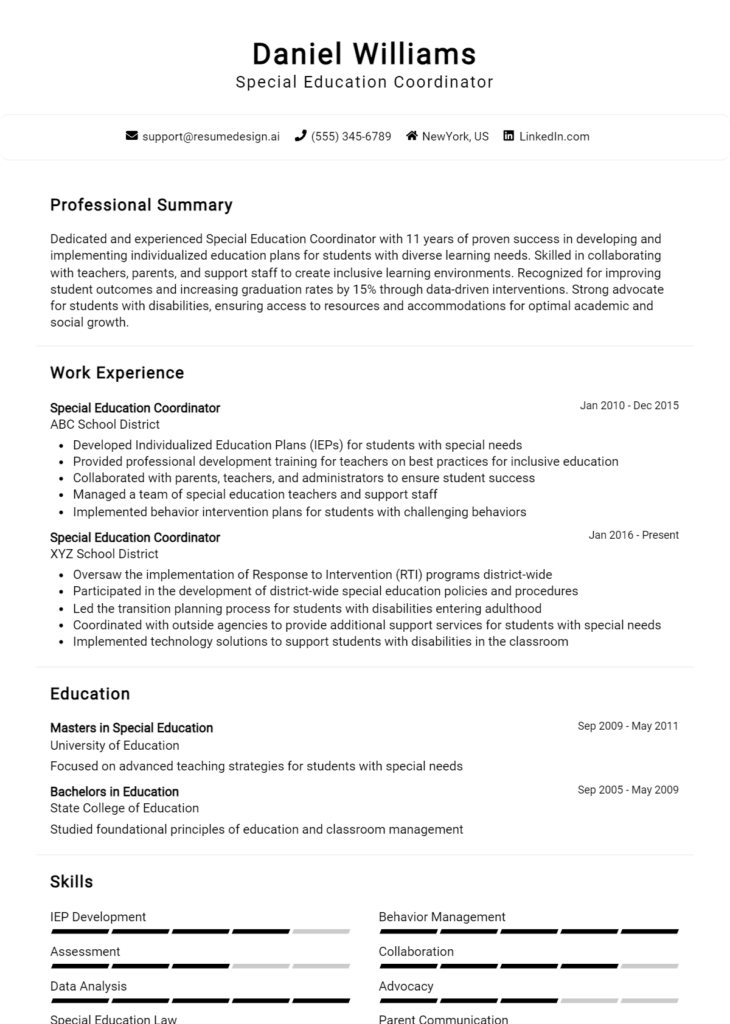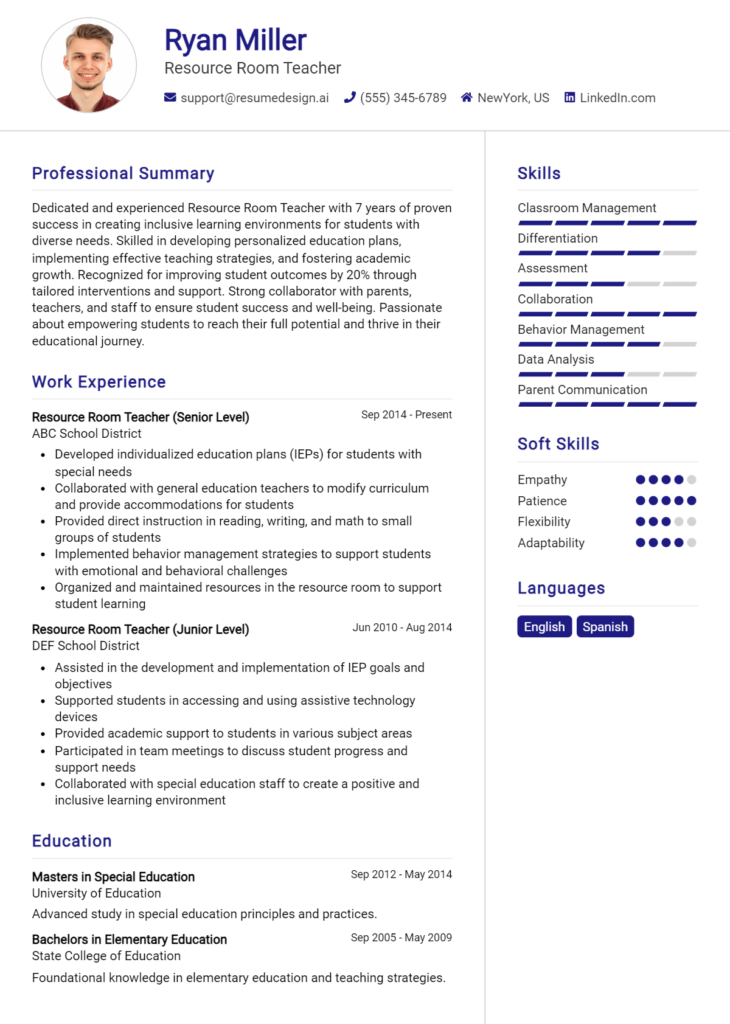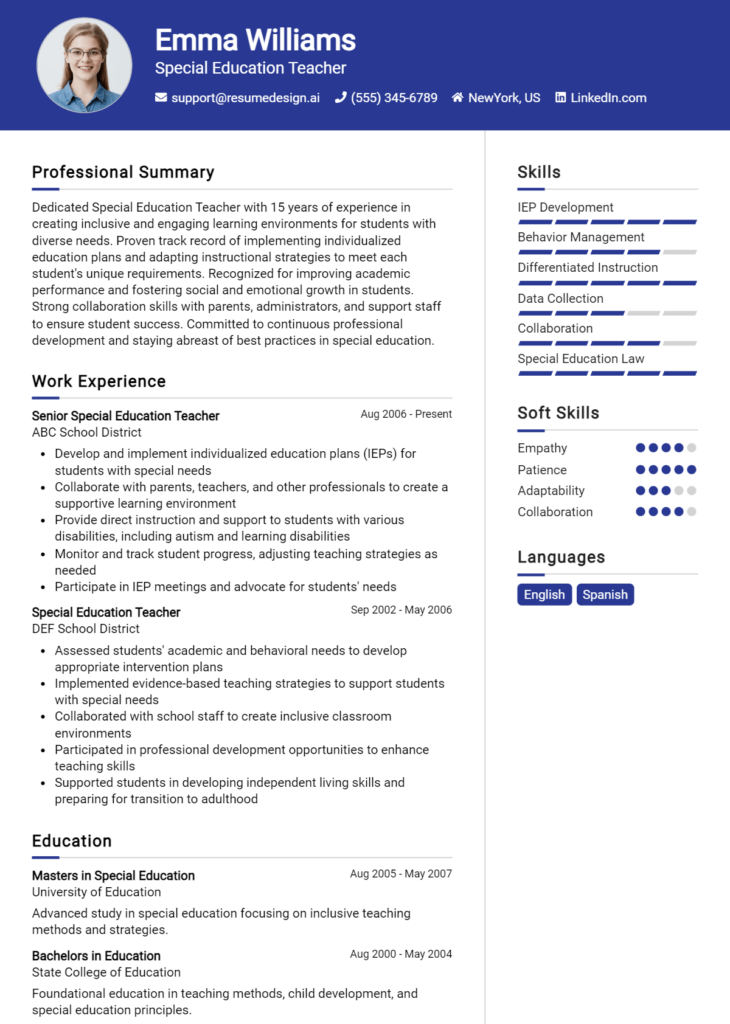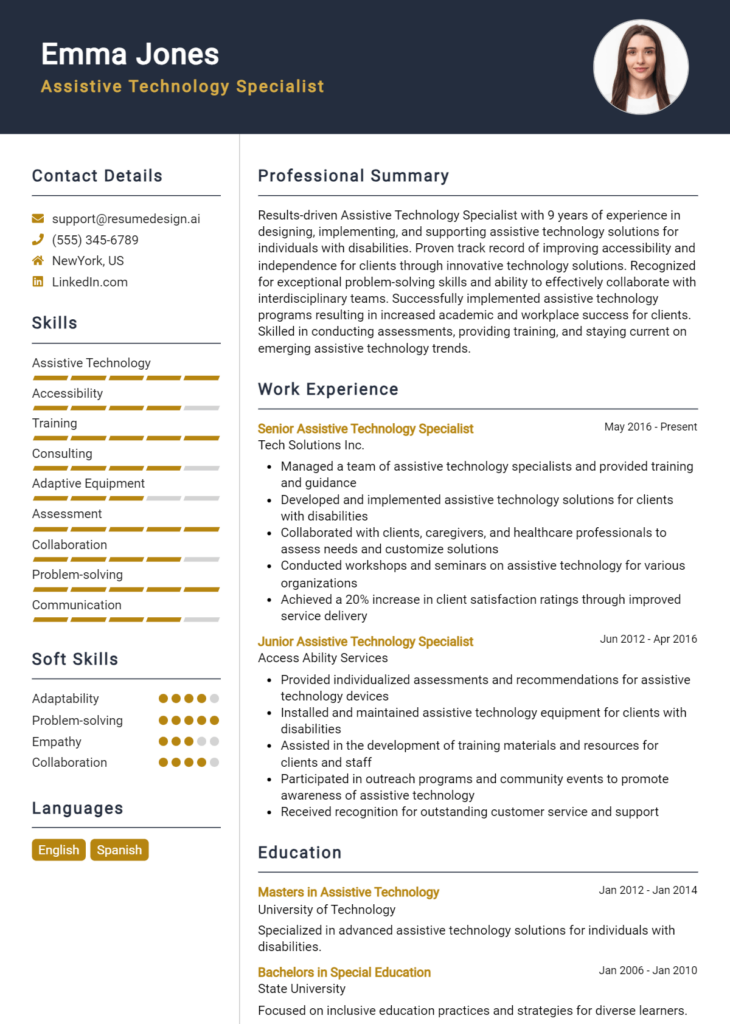Occupational Therapist Coach Core Responsibilities
An Occupational Therapist Coach plays a vital role by integrating therapeutic practices across different departments, ensuring cohesive patient care. Key responsibilities include developing tailored treatment plans, coaching clients on adaptive strategies, and collaborating with healthcare teams to enhance operational efficiency. Strong technical, operational, and problem-solving skills are essential for success in this role, as they directly contribute to organizational goals. A well-structured resume can effectively highlight these qualifications, showcasing the candidate's ability to foster collaboration and improve patient outcomes.
Common Responsibilities Listed on Occupational Therapist Coach Resume
- Assessing clients' needs and developing personalized therapy plans.
- Coaching clients on daily living skills and adaptive techniques.
- Collaborating with interdisciplinary teams to optimize patient care.
- Monitoring client progress and modifying treatment strategies as needed.
- Providing training and support to occupational therapy staff.
- Conducting workshops and educational sessions for clients and families.
- Documenting client progress and maintaining accurate records.
- Staying updated on industry best practices and therapeutic techniques.
- Advocating for clients' needs within healthcare systems.
- Utilizing assessment tools to evaluate client capabilities.
- Implementing community-based programs to support client rehabilitation.
- Engaging in continuous professional development and training.
High-Level Resume Tips for Occupational Therapist Coach Professionals
In the competitive field of Occupational Therapy Coaching, a well-crafted resume is crucial for standing out among candidates. Your resume serves as the first impression you make on potential employers; it must effectively reflect your unique skills and achievements. A compelling resume not only communicates your qualifications but also showcases your passion for helping clients achieve their goals. This guide will provide practical and actionable resume tips specifically tailored for Occupational Therapist Coach professionals, helping you to present yourself in the best light possible.
Top Resume Tips for Occupational Therapist Coach Professionals
- Tailor your resume to each job description by incorporating relevant keywords and phrases used in the listing.
- Highlight your relevant experience, including specific roles and responsibilities that align with the Occupational Therapist Coach position.
- Quantify your achievements where possible, using metrics such as the number of clients served or improvements in client outcomes.
- Showcase industry-specific skills such as patient assessment, rehabilitation techniques, and personalized care plans.
- Include any certifications or advanced training in occupational therapy or coaching that set you apart from other candidates.
- Use action verbs to describe your duties and accomplishments, making your contributions clear and impactful.
- Incorporate a section for professional development, showcasing workshops, seminars, or conferences relevant to occupational therapy.
- Keep your formatting clean and professional, ensuring readability with clear headings and bullet points.
- Consider adding a summary statement that encapsulates your experience and passion for occupational therapy coaching.
By implementing these tips, you can significantly increase your chances of landing a job in the Occupational Therapist Coach field. A tailored and impactful resume will not only highlight your qualifications but also convey your dedication to enhancing the wellbeing of your clients, making you a standout candidate in this rewarding profession.
Why Resume Headlines & Titles are Important for Occupational Therapist Coach
In the competitive field of occupational therapy, crafting a compelling resume headline or title is crucial for standing out to hiring managers. A well-formulated headline immediately captures attention and succinctly summarizes a candidate's key qualifications in an impactful phrase. It serves as the first impression of the applicant, setting the tone for the entire resume. A strong headline should be concise, relevant, and directly related to the specific role of Occupational Therapist Coach, showcasing the candidate's unique skills and experiences in a way that entices hiring managers to read further.
Best Practices for Crafting Resume Headlines for Occupational Therapist Coach
- Keep it concise: Aim for one clear, impactful sentence.
- Be role-specific: Tailor your headline to reflect the specific job title you are applying for.
- Highlight key qualifications: Focus on your most relevant skills and experiences.
- Use action words: Start with strong verbs to convey proactivity and expertise.
- Incorporate metrics: Whenever possible, include quantifiable achievements to demonstrate your impact.
- Reflect your unique value proposition: Show what sets you apart from other candidates.
- Avoid jargon: Use clear language that can be easily understood by all hiring managers.
- Revise regularly: Update your headline for each application to ensure it aligns with the job description.
Example Resume Headlines for Occupational Therapist Coach
Strong Resume Headlines
"Certified Occupational Therapist Coach with 10+ Years of Experience in Pediatric Rehabilitation"
“Transformational Occupational Therapist Coach Specializing in Adaptive Strategies for Neurological Disorders”
"Results-Driven OT Coach Focused on Evidence-Based Practices and Patient-Centered Care"
Weak Resume Headlines
“Occupational Therapist Looking for a Job”
“Experienced Therapist”
The strong headlines are effective because they clearly communicate specific qualifications, experiences, and areas of expertise, making it easy for hiring managers to see the candidate's value at a glance. In contrast, the weak headlines fail to impress due to their vagueness and lack of detail, leaving hiring managers without a clear understanding of what the candidate can bring to the role. Strong headlines provide a precise snapshot of the candidate's capabilities, while weak headlines blend into the crowd, offering no compelling reason to continue reading.
Writing an Exceptional Occupational Therapist Coach Resume Summary
Crafting an exceptional resume summary for an Occupational Therapist Coach is crucial in making a lasting first impression on hiring managers. This brief yet impactful statement serves as the candidate's elevator pitch, quickly highlighting their key skills, relevant experience, and significant accomplishments that align with the job role. A well-structured resume summary not only captures attention but also sets the tone for the rest of the resume, making it vital for applicants to be concise and tailored in their approach to the specific position they seek.
Best Practices for Writing a Occupational Therapist Coach Resume Summary
- Quantify Achievements: Use numbers and metrics to showcase your successes, such as improving patient outcomes or increasing therapy participation rates.
- Focus on Relevant Skills: Highlight specific skills that are directly applicable to the Occupational Therapist Coach role, such as assessment techniques, patient education, or program development.
- Tailor the Summary: Customize the summary for each job application to reflect the requirements and responsibilities outlined in the job description.
- Be Concise: Aim for 3-5 sentences that succinctly capture your qualifications and contributions without overwhelming the reader.
- Use Action Words: Start sentences with strong action verbs to convey confidence and proactivity, such as "developed," "implemented," or "enhanced."
- Showcase Leadership: Highlight any leadership or mentorship experience, as this is critical for a coaching role in occupational therapy.
- Include Professional Certifications: Mention any relevant certifications or licenses that validate your expertise in the field.
- Reflect Passion for the Field: Convey your commitment to patient care and professional development, demonstrating your enthusiasm for the role.
Example Occupational Therapist Coach Resume Summaries
Strong Resume Summaries
Dynamic Occupational Therapist Coach with over 7 years of experience in enhancing patient rehabilitation outcomes through innovative therapy programs. Successfully increased patient engagement by 30% and improved functional independence scores by 25% through tailored coaching strategies.
Dedicated Occupational Therapist Coach skilled in developing comprehensive treatment plans and leading multidisciplinary teams. Achieved a 40% reduction in therapy dropout rates by implementing engaging patient education workshops and personalized follow-up protocols.
Results-driven Occupational Therapist Coach with a proven track record of mentoring new therapists and improving program efficiency. Raised the overall success rate of therapy interventions by 15% through data-driven assessments and individualized coaching techniques.
Weak Resume Summaries
Occupational Therapist Coach with experience in the field. I help patients improve their skills and abilities.
Experienced therapist looking for a new opportunity. I am passionate about helping people and have worked with various clients.
The strong resume summaries are considered effective because they include specific metrics and achievements that demonstrate the candidate's impact in previous roles. They clearly articulate relevant skills and experiences tailored to the Occupational Therapist Coach position, making them appealing to hiring managers. In contrast, the weak resume summaries lack detail and quantification, resulting in vague descriptions that do not effectively convey the candidate's qualifications or contributions to potential employers.
Work Experience Section for Occupational Therapist Coach Resume
The work experience section of an Occupational Therapist Coach resume is critical in demonstrating the candidate's professional journey and expertise in the field. This section not only highlights technical skills but also showcases the individual's ability to manage teams effectively and deliver high-quality results in therapy settings. Employers seek quantifiable achievements that align with industry standards, making it essential for candidates to articulate their experiences in ways that reflect their contributions to team objectives and patient outcomes.
Best Practices for Occupational Therapist Coach Work Experience
- Use action verbs to describe your responsibilities and accomplishments.
- Quantify achievements where possible, using metrics to illustrate impact.
- Highlight specific technical skills relevant to occupational therapy and coaching.
- Detail collaborative projects that demonstrate teamwork and leadership abilities.
- Tailor your experiences to match the job description and industry standards.
- Include relevant certifications and training that enhance your qualifications.
- Show progression in your roles to indicate career development and expertise.
- Keep descriptions concise and focused on results-oriented outcomes.
Example Work Experiences for Occupational Therapist Coach
Strong Experiences
- Developed and implemented a new rehabilitation program that improved patient recovery rates by 30% within six months.
- Led a team of 10 therapists in a collaborative project that increased patient engagement scores by 25% over one year.
- Trained 15 new occupational therapists in advanced therapeutic techniques, resulting in a 20% decrease in patient treatment times.
- Facilitated workshops on evidence-based practices, enhancing the team's approach to patient care and improving overall outcomes.
Weak Experiences
- Worked on various projects with different teams to help patients.
- Assisted in implementing some therapy techniques.
- Participated in training sessions for new hires.
- Helped improve patient care in an unspecified manner.
The examples classified as strong experiences are marked by concrete achievements, quantifiable results, and clear indications of leadership and collaboration. They demonstrate a direct impact on patient outcomes and team performance, making them compelling to potential employers. Conversely, the weak experiences lack specificity and measurable outcomes, providing little insight into the candidate's contributions, skills, or effectiveness in their roles.
Education and Certifications Section for Occupational Therapist Coach Resume
The education and certifications section of an Occupational Therapist Coach resume is vital in showcasing the candidate's academic achievements, industry-relevant certifications, and commitment to continuous professional development. This section not only highlights the foundational knowledge and skills acquired through formal education but also emphasizes specialized training and certifications that enhance the candidate's credibility. By providing relevant coursework and industry-recognized credentials, candidates can effectively align themselves with the specific requirements of the Occupational Therapist Coach role, thereby increasing their attractiveness to potential employers.
Best Practices for Occupational Therapist Coach Education and Certifications
- List degrees in reverse chronological order, starting with the most recent.
- Include relevant coursework that directly relates to occupational therapy and coaching.
- Highlight advanced certifications from recognized professional organizations.
- Showcase any specialized training or workshops that demonstrate a commitment to continuous learning.
- Use clear and concise language to describe each credential.
- Incorporate any honors or distinctions received during education or training.
- Ensure that all certifications are current and reflect the latest industry standards.
- Tailor this section to emphasize qualifications most relevant to the job description.
Example Education and Certifications for Occupational Therapist Coach
Strong Examples
- M.S. in Occupational Therapy, University of Health Sciences, 2021
- Certified Occupational Therapist (COT), National Board for Certification in Occupational Therapy, 2022
- Advanced Coaching Certification, International Coach Federation, 2023
- Completed coursework in Therapeutic Techniques and Client Assessment Strategies.
Weak Examples
- B.A. in Sociology, University of Social Studies, 2010
- Certification in Basic First Aid, 2015
- Online course in General Health Topics, 2020
- High School Diploma, 2005
The strong examples are considered robust because they directly relate to the skills and knowledge required for an Occupational Therapist Coach, indicating recent and relevant education and certifications. In contrast, the weak examples are deemed less effective as they reflect outdated or unrelated qualifications that do not align with the demands of the role, potentially undermining the candidate's suitability for the position.
Top Skills & Keywords for Occupational Therapist Coach Resume
As an Occupational Therapist Coach, possessing the right skills is essential to effectively support clients in achieving their therapeutic goals. A well-crafted resume that highlights both hard and soft skills can significantly enhance a candidate's appeal to potential employers. Skills not only showcase a candidate's qualifications but also demonstrate their ability to connect with clients, understand their needs, and implement appropriate therapeutic interventions. Therefore, it is crucial for professionals in this field to thoughtfully curate their resume to reflect their unique strengths and capabilities, ensuring they stand out in a competitive job market.
Top Hard & Soft Skills for Occupational Therapist Coach
Soft Skills
- Empathy
- Active Listening
- Communication Skills
- Problem-Solving
- Patience
- Adaptability
- Team Collaboration
- Time Management
- Motivational Skills
- Conflict Resolution
- Cultural Competence
- Leadership
- Creativity
- Attention to Detail
- Organization Skills
- Emotional Intelligence
- Client-Centered Approach
Hard Skills
- Knowledge of Therapeutic Techniques
- Assessment and Evaluation Skills
- Treatment Planning
- Knowledge of Occupational Therapy Standards
- Familiarity with Assistive Technology
- Case Management
- Documentation and Record Keeping
- Regulatory Compliance
- Research and Evidence-Based Practice
- Crisis Intervention Techniques
- Patient Education
- Rehabilitation Strategies
- Manual Therapy Techniques
- Knowledge of Mental Health Disorders
- Exercise Prescription
- Data Analysis
- Software Proficiency (e.g., Electronic Health Records)
By integrating these skills into your resume, you can effectively demonstrate your qualifications to potential employers, enhancing your chances of securing a desirable position. Additionally, showcasing relevant work experience alongside these skills will further solidify your expertise and commitment to the field of occupational therapy coaching.
Stand Out with a Winning Occupational Therapist Coach Cover Letter
As a passionate and dedicated Occupational Therapist Coach, I am excited about the opportunity to contribute to your organization’s mission of enhancing the quality of life for individuals through tailored therapeutic interventions. With a strong background in occupational therapy and a commitment to coaching and mentoring, I am eager to leverage my skills to support clients in achieving their personal and professional goals. My experience working with diverse populations has equipped me with the tools necessary to create individualized plans that promote independence and well-being.
In my previous role at [Your Previous Organization], I successfully developed and implemented coaching programs that focused on skill development, goal setting, and personal empowerment. I believe that effective coaching goes beyond traditional therapy; it involves understanding each client’s unique needs and working collaboratively to foster growth and resilience. By utilizing evidence-based practices and maintaining open lines of communication, I have helped clients overcome barriers and achieve significant milestones in their therapeutic journeys.
I am particularly drawn to your organization because of its commitment to holistic care and community involvement. I admire your focus on creating inclusive environments that prioritize client engagement and empowerment. I am eager to bring my expertise in occupational therapy and coaching to your team, helping to cultivate a supportive atmosphere where clients can thrive. I am confident that my proactive approach and ability to inspire others will make a meaningful contribution to your organization.
Thank you for considering my application. I look forward to the possibility of discussing how my skills and experiences align with the goals of your organization. I am enthusiastic about the opportunity to work as an Occupational Therapist Coach and contribute to the transformative work being done in the field.
Common Mistakes to Avoid in a Occupational Therapist Coach Resume
When crafting a resume for the role of an Occupational Therapist Coach, it's crucial to present your skills and experiences effectively to stand out in a competitive field. Many applicants make common mistakes that can undermine their qualifications and reduce their chances of landing an interview. By being aware of these pitfalls and avoiding them, you can create a strong, professional resume that highlights your expertise and commitment to helping clients achieve their goals. Here are some common mistakes to avoid:
Using a Generic Template: Many candidates rely on one-size-fits-all templates that fail to showcase their unique skills and experiences. Tailoring your resume to fit the specific job description can make a significant difference.
Overloading with Jargon: While it's important to demonstrate expertise, using excessive technical language can alienate hiring managers who may not be familiar with specific terms. Aim for clarity and conciseness.
Neglecting Soft Skills: Focusing solely on clinical skills and neglecting essential soft skills, such as communication and empathy, can leave out crucial qualities that are vital for a coaching role.
Ignoring Quantifiable Achievements: Failing to include specific examples of your impact, such as client success rates or program improvements, can make your experience seem less impressive. Use numbers and outcomes to demonstrate your effectiveness.
Not Customizing for Each Application: Sending the same resume for multiple job applications can be detrimental. Each position may require different skills and experiences, so tailor your resume accordingly.
Omitting Continuing Education: As an Occupational Therapist Coach, ongoing professional development is essential. Not highlighting certifications, workshops, or training programs can make your resume appear stagnant.
Using Unprofessional Formatting: A cluttered or overly complex layout can distract from your qualifications. Stick to a clean, professional design that enhances readability.
Failing to Proofread: Typos and grammatical errors can create an impression of carelessness. Always proofread your resume or have someone else review it to ensure it’s error-free.
Conclusion
As we conclude our exploration of the vital role of an Occupational Therapist Coach, it’s clear that this position is essential in supporting individuals in their journey toward improved health and independence. Key responsibilities include assessing clients’ needs, designing personalized therapeutic programs, and providing ongoing support and motivation. Furthermore, the importance of effective communication and collaboration with healthcare teams cannot be overstated, as it enhances the overall quality of care provided to clients.
Now is the perfect time to take a closer look at your Occupational Therapist Coach resume and ensure it reflects your skills, experiences, and the value you bring to potential employers. A strong resume can set you apart in this competitive field. To assist you, there are various resources available:
- Explore a variety of resume templates that can help you structure your document effectively.
- Use a resume builder to create a polished and professional resume with ease.
- Check out resume examples for inspiration on how to present your qualifications.
- Don't forget to craft an impactful cover letter with the help of cover letter templates to complement your resume.
Take action today by reviewing and updating your resume to showcase your expertise as an Occupational Therapist Coach. Your next career opportunity may be just around the corner!

